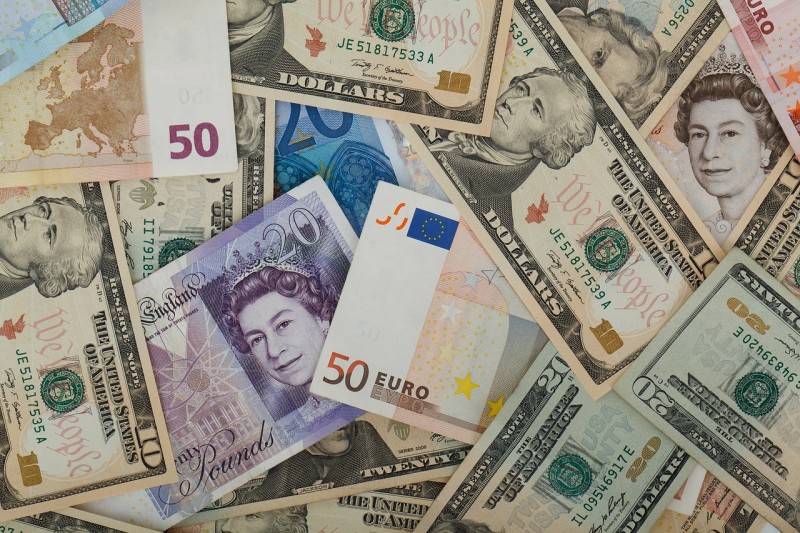As an entrepreneur, it's important to be aware of the factors that influence currency exchange rates. When you're making international transactions, the exchange rate can have a huge impact on your bottom line. Even though it is not easy to track or anticipate these factors, it is better to have a solid understanding about them. Olympia Trust Calgary Currency Exchange specializes in this portal. With the help of their experts, you can easily manage global payments and handle foreign currency transactions.
Without further adieu, let’s discuss nine factors that play a role in currency exchange rates. This article also talks about how you can use market analysis to stay ahead of the curve and make more informed business decisions.
Inflation
Inflation is one of the most important drivers of currency exchange rates. When inflation is high, it takes more of a currency to buy goods and services. This results in a higher demand for the currency, which drives up its value.
Public Debt
Another factor that influences currency exchange rate is public debt. Countries with high levels of public debt are often forced to print more money, which can lead to inflation and a decrease in the value of their currency.
Balance of Trade
The balance of trade is another key driver. Countries that export more than they import tend to have stronger currencies because there is greater demand for their currency.
Market Analysis
Market analysis helps to stay ahead of the curve and make more informed business decisions. By keeping tabs on economic indicators like inflation, public debt, and the balance of trade, you'll be able to predict changes in currency exchange rates. This will give you a competitive advantage when making international transactions. By understanding the factors that influence currency exchange rates, you can be better prepared for fluctuations in the market.
Sanctions
Sanctions are another factor that can influence currency exchange rates. When a country is sanctioned by another country, it often results in a decrease in demand for its currency. This can lead to a devaluation of the currency.
Political Stability
Another thing to consider is political stability when trying to predict currency exchange rates. When a country is politically stable, investors tend to have more confidence in its currency. This can lead to an increase in the value of the currency.
GDP Growth
GDP growth can be seen as another imperative factor that can influence currency exchange rates. When a country's economy is growing, its currency tends to become more valuable. This is because there is more demand for the currency.
Supply and Demand
The final factor that we'll discuss is supply and demand. When there is more demand for a currency than there is supply, the price of the currency goes up. This can lead to an appreciation of the currency. Alternatively, when there is more supply than demand, the price of the currency goes down. This can lead to the depreciation of the currency.
Commodity Prices
Commodity prices can also have an impact on currency exchange rates. When commodity prices are rising, it can lead to inflationary pressures. This, in turn, can cause the value of a currency to decrease.
Other factors that play an important role include
Currency Market Sentiment
This refers to the overall mood of the market. When sentiment is positive, it can lead to an increase in the value of a currency. On the other hand, when sentiment is negative, it can lead to a decrease in the value of a currency.
In order to get an accurate picture of sentiment, you need to look at a variety of different indicators. These include things like economic data, central bank policy, and Geo-political tensions.
Central Bank Policy
Central banks play a big role in setting currency exchange rates. By raising or lowering interest rates, central banks can influence the demand for a particular currency. This, in turn, can cause the value of the currency to rise or fall.
Geo-Political Tensions
Geopolitical tensions can also have an impact on currency exchange rates. When there is political instability in a country, investors tend to shy away from that country's currency. This can cause the value of the currency to drop.
Volatility
Volatility is another important factor that can influence currency exchange rates. When there is high volatility in the market, it can lead to big fluctuations in exchange rates. This can make it difficult to predict the future direction of a currency.
Conclusion
All of these factors can have a big impact on currency exchange rates. When you're making business decisions, it's important to be aware of how these factors might affect the value of your transactions. By understanding the market and staying up-to-date on current events, you can minimize risk and maximize your chances for success. Market analysis can also give you a competitive advantage by helping you predict changes in the market.
Tech Guest Post Category accepted at FMT website. Email at fastmoldtech@gmail.com.









